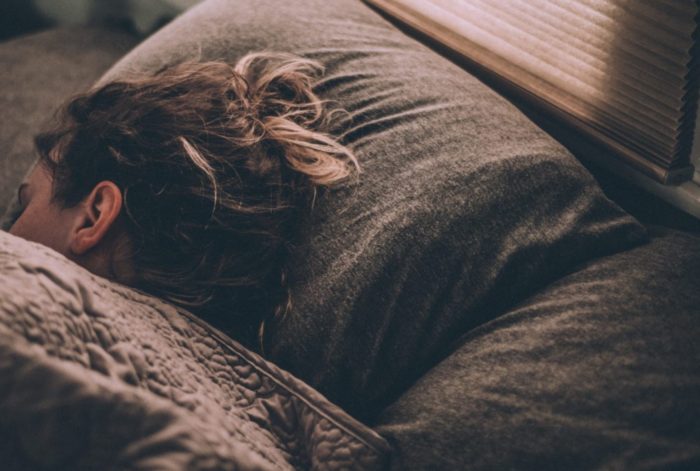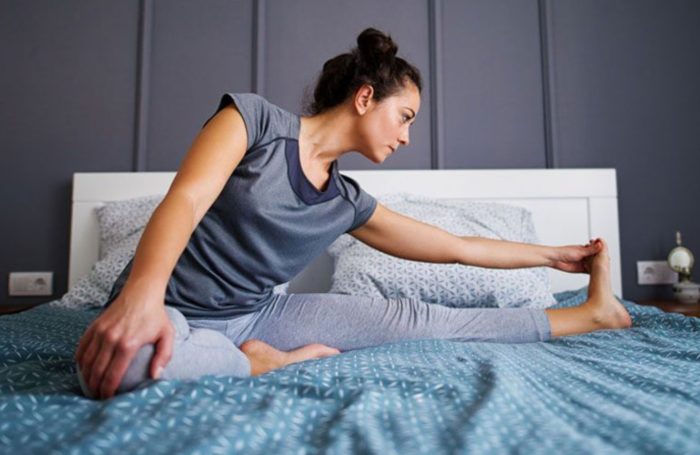There might be several reasons why you can’t seem to get a restful sleep at night, but don’t despair. While anxiety, tension, and other factors could be keeping you up at night, there are some very effective ways to ensure a proper sleeping cycle.
Whether you’re suffering from jet lag, a busy schedule, or insomnia, certain practices can help to maintain your sleep hygiene. Instead of taking sleeping pills, try out these methods; they’re much safer and healthier!
1. Skip the Caffeine

Any kind of caffeinated drink (or food) will interfere with your sleep. The most common examples of these are tea, coffee, chocolate, and energy drinks. If you must have these items, make sure to avoid them at least four hours before it’s time to sleep.
You might also be using some medication that contains caffeine, so see if that’s the culprit. In such cases, ask your doctor to change the prescription or the timing of the dosage.
2. Prepare Your Surroundings

To get proper sleep in your bedroom, you need to have an environment that’s conducive to this need. Darken the room, put on a white noise machine, and get some heavy curtains for a quieter effect. Cool temperatures are also best for sleeping, so have a proper ventilation system and a temperature below 75 degrees Fahrenheit.
It’s also a good idea to reserve your bedroom for sleeping and relaxing purposes. If you regularly do your work there as well, it can be hard for your brain to switch into a relaxing mode when bedtime rolls around.
3. Establish a Pre-Bedtime Routine

When you perform the same set of actions before bed, your body eventually learns that this means you’re resting afterward. This routine includes taking a bath, reading a good book, some breathing exercises, etc. Stressful actions are not recommended, so save those emotional conversations and work emails for earlier in the day.
4. Get Some Sun Exposure

Research has shown that exposure to natural light can help us get our internal clock into a healthy pattern. More sun exposure will provide you a healthy dose of Vitamin D, which is also great for an improved sleep cycle.
5. Start Doing Evening Stretching

Exercising increases stress hormones while suppressing your sleep hormones. You can make use of this pattern by exercising as early in the morning as possible. This will allow you to utilize that natural cortisol at that time while reserving your sleep hormone for the nighttime. Five minutes of gentle stretching before bedtime can help you relax and prepare your body for a sound rest.
6. Invest in a More Comfortable Mattress

Back problems, overheating, and uncomfortable springs can ruin your sleeping potential, so it might be time to upgrade your bed. Your body type and sleeping position might require certain sleeping conditions. That’s why you should take a look at the most comfortable mattress you can afford.
Certain mattresses might cost a pretty penny, but they’re worth it for the durability and extreme comfort. If you can use your hard-earned money to get the refreshing sleep you need, that’s quite a solid bargain. Sleeping Ninjas highlights the top 10 most comfortable mattresses based on a range of factors.
7. Eat Light and Early

Eating a heavy dinner will put too much strain on your stomach at night, especially since you can’t burn it off then. Avoid anything that can give you indigestion, so keep it light and have your dinner as early as possible.
8. Tap into the Power of Magnesium

Many who suffer from a lack of sleep might have a magnesium deficiency. Try rubbing magnesium oil or magnesium lotion on your soles and calves and see if that makes a difference. You can also take a supplement to get your required dosage of magnesium. However, you should consult your health practitioner before going ahead with this.
9. Get Tired First

There’s no sense in tossing and turning when you’re simply not tired or sleepy. If you’ve been lying awake for around twenty minutes, get up and do something to tire or calm yourself. This could be reading a book, meditation, or just setting out your clothes for the next day.
The Takeaway
If you’re one of those people who would do anything for a good night’s sleep, the tips above will hopefully help you out. Try one or more the next time you’re lying awake late in the night. They might not all work in the same manner for everyone, though, so see which ones are the most effective for you.









